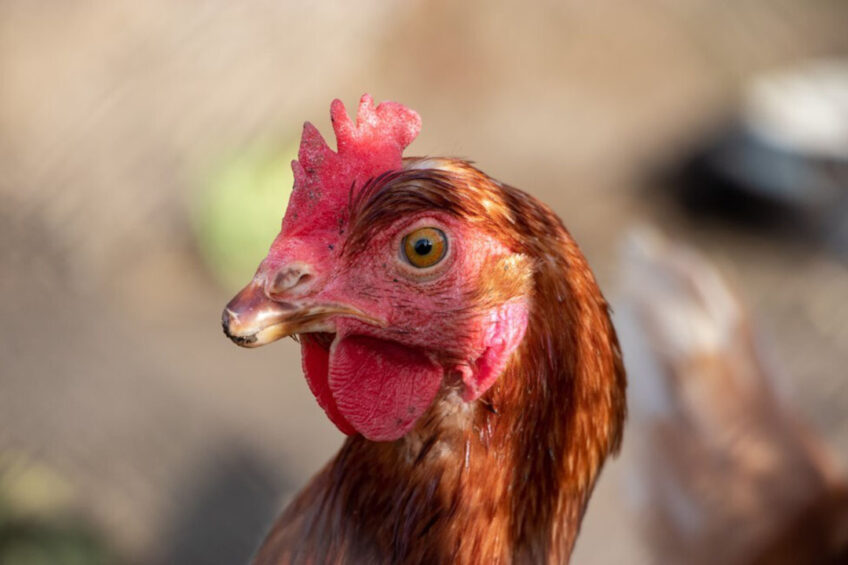Advice for UK free-range egg producers facing bird flu threat

Feed companies and insurance firms have been providing additional advice to UK free-range egg producers facing changes in their management systems as the national housing order comes into effect.
Since 7 November, all birds in the UK must be kept indoors. This means changes to nutritional requirements and performance.
Brian Kenyon, ABN senior nutrition manager, said it is important for producers to recognise that the bird’s environment had changed, along with their routine, while their health status was under increased pressure.
With layers at different stages of production, Kenyon stresses the importance of matching feed requirements to individual production, saying a partnership approach with their feed adviser was essential, with regular communications key to adjusting feeding programmes as required.
John Thornborrow, ABN lead poultry account manager, said: “It may be that your flock copes quite well initially, but things may change. For example, you may see egg size increases, which can potentially create a lot of additional problems and affect bird longevity.”
Top tips
As well as nutritional changes, there are behavioural, environmental and health concerns. Thornborrow highlights the following tips to consider during the increased biosecurity measures:
- Smothering – before housing, alternate pop hole opening and closing times to gauge bird response.
- Injurious pecking – enrich the scratch area with blocks, bales, hanging objects and grit.
- Remove capped litter and adjust ventilation systems as higher house temperatures can cause increased ammonia and more favourable environment virus, bacteria, and parasites.
- Internal lighting can induce stress and behavioural issues – operate with the legal minimum to calm birds.
- Increased bird density can accelerate disease so:
- Monitor and treat as usual red mite infestation
- Continue with current frequency and understand signs of Infectious Bronchitis spread
- Continue with frequent monitoring and treatment for worm infestation
- Consider pH water treatment to counterbalance increased bacterial load on scratch areas
Insurance
Meanwhile, free-range producers are being used to still take out insurance coverage or face the risk of having no income for a minimum of 8-9 months in the event of an outbreak. Steven Smout, head of agriculture at McLarens global loss adjusters, said insurance is 100% necessary because the stringent eradication policies are not sufficiently covered by government compensation.
Smout said that while the government “will pay compensation for the value of the remaining, living hens, they do not compensate for the full revenue impact. If the government will pay out for example, £200,000 when a loss might actually be closer to £1.5 million, the insurance industry has to pick up the shortfall.
“The issue we will have is that revenue losses will likely increase yearly. Egg production is a capital-intensive business. With issues like the war in Ukraine, we are seeing agricultural inflation at unprecedented levels. Rates of 100% for fertiliser and 50% for seeds are not uncommon. It’s a very challenging environment at the moment.”
“The situation is compounded by agri-inflation and the increased financial risk the poultry and ancillary industries now face.”
Ed Davey, director at Dallas Scott Davey, who broker avian influenza cover and handle claims, said farmers were increasingly concerned about the exposure their businesses faced, especially heading into winter: “It is difficult to predict where we are going to be. The situation is compounded by agri-inflation and the increased financial risk the poultry and ancillary industries now face.”
Producers, he said, needed to undertake due diligence and ensure that risk management was a priority, adding there was a collective responsibility to mitigate risk. “This is a complex cover to place in a very narrow market, and terms are hard to nail down because the situation is constantly evolving and changing.
“Underwriters need confidence in producers’ expertise in managing their business. We need to analyse every aspect of the business in detail, which can take months. Producers need to demonstrate a clear understanding of their financials and the production process and maintain high standards of biosecurity, as well as have contingency plans in place. They need to then obtain approval of their plans from the Animal and Plant Health Agency.”
Davey added that the extent of avian influenza claims this year had led several insurers to look at re-rating their books. “This is a bespoke line of cover, and individual situations vary. Producers need to check their policy wording carefully to ensure compliance or otherwise policies could be invalidated in the event of a claim.”
Ed Nottingham, Scrutton Bland Insurance Brokers insurance director, added: “Premiums are increasing across the board, but individual situations will vary depending on management and geography.”
There have been a couple of claims this year in excess of £1 million per claim, and as a result, cover has been pared back to limit exposure, he added.








